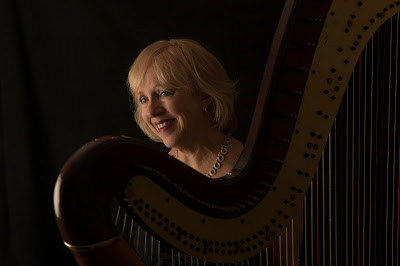Mu Phi Epsilon
In 1903, Dr. Winthrop Sterling, Dean of the Metropolitan College of Music, Elocution and Dramatic Art in Cincinnati, Ohio, had a dream that women music students should have an organization that would bring them together, providing a sense of well-being and guidance. He enlisted the help of his 19-year-old assistant and fellow faculty member, Elizabeth Mathias (later Elizabeth Mathias Fuqua) to establish such an organization.
 | ||
| Image courtesy of the Mu Phi Epsilon 1904 Year-Book |
Mu Phi Epsilon
was to be chartered as a National Music Sorority, the first of its kind in the United States, working for a stronger
foothold in the musical world where there could be equal opportunities for both
sexes. Thus, the Mu Phi Epsilon Alpha
Chapter held its first meeting with thirteen young women on that fateful
November 13, 1903 (yes, it was a Friday!).
The
establishment of the Beta Chapter at the New England Conservatory in Boston
soon followed, November 30, 1903.
 |
| Image courtesy of the Mu Phi Epsilon 1904 Year-Book |
The purpose of Mu Phi Epsilon is the recognition of
scholarship and musicianship, and the development of a bond of friendship among
its members (“Music, Friends, and Harmony”). Its aim is the advancement of
music in the community, nation, and world through promotion of musicianship,
scholarship, therapy, and education, with an emphasis on service through music.
The Mission of Mu Phi
Epsilon:
- Foster the ideals of service to school and community
- Develop an awareness that artistic gifts are to be shared
- Promote high scholarship, musicianship, and friendship through service
- Provide opportunities for strong artistic and personal abilities
In 1944, Mu Phi Epsilon changed status to function as a Professional Music Sorority, after definitions of general, honor and professional sororities were formulated and accepted by the National Conference on College Fraternities and Societies. Mu Phi Epsilon became a co-educational Professional Music Fraternity in 1977 in compliance with federal regulations of Title IX of the Education Amendments Act of 1972.
The
Fraternity’s outreach efforts include the formation of the School of Music at Gads
Hill Center in Chicago, the Interlochen Scholarship Lodge, the Cleveland
Music School Settlement, the International Music Camp in Dunseith, North Dakota,
the MacDowell Colony, the MacPhail Center for Music in Minneapolis, Marrowstone
Music Festival in Bellingham, WA, Music Academy of the West in Santa Barbara, and
Project STEP in Boston among others. Mu Phi Epsilon offers a wide range of
scholarships and grants.
 |
| Photo courtesy of the author |
 | |||||||||||||||||||||||||||||||||
| Photo courtesy of the author |
 |
| Photo courtesy of the author
(P.S.
the hiddy wall-paper has changed!)
|
A
Mu Phi Epsilon library has existed in some form or another since the
organization’s early years. For most of that time, organizing and housing it
fell on the shoulders of the International Presidents, and thus, each time a
new president was elected, the materials were transferred to her. This
cumbersome and expensive process ended in 2000 when the holdings were
transferred to their current location in Independence, Mo., to be curated by me, your humble author. Check out the website!
Many more historical fraternity materials were transferred from the International Executive Office to the Library & Archives in 2003 and 2014. For the Centennial in 2003, I updated the finding aid, Mu Phi Epsilon Composers & Authors, more than doubling the number of names within. The last full edition of this book was published in 1972 with a supplement appearing in 1976.
The
impact Mu Phi Epsilon has had, particularly in the encouragement of women
musicians, cannot be overstated. A gentle mandate was in place that for chapter
and convention meetings, pieces by Mu Phi composers be offered, performed by Mu
Phi performers. The Mu Phi Epsilon-sponsored composition, research, and
performance competitions many times either launched renowned careers or
provided opportunities not available anywhere else for a musical female.
----------
A
very select list of some famous Mu
Phis:
Amy Beach (Mrs. H.H.A.),
piano, composer
Diane Bish, organ,
arranger, television producer
Leone Buyse, flute,
educator
Stephanie Chase, violin
Chen Yi, composer
Cecile Chaminade (honorary
member), piano, composer
Joyce DiDonato, mezzo-soprano
Emma Lou Diemer, keyboards,
composer
Sandra Gay, organ, composer
Dorothy Gaynor Blake,
piano, composer, educator
Elizabeth Gould, composer,
educator
Anne Gray, author
Marilyn Harris, cello,
composer
Marilyn Horne, mezzo-soprano
Wihla Hutson, composer, author
(incl. the Alfred Burt Carols)
Carrie Jacobs-Bond,
composer
Alice Jordan, organ,
composer
Virginia Kendrick, piano,
organ, composer
Sherry Kloss, violin
Marian MacDowell (Mrs.
Edward), piano, philanthropist
Harriet Payne, viola, composer,
conductor
Zenobia Powell Perry,
composer, educator
Deon Nielsen Price, piano,
composer
Gladys Rich, composer
Ernestine Schumann-Heink,
contralto
Williametta Spencer, piano,
organ, composer, educator
Dorothy Tulloss, educator
Shirley Verrett, mezzo-soprano
Ruth Watanabe, music librarian
Amy Worth, piano, organ,
composer, educator
Ruth Shaw Wylie, composer



More famous women in Mu Phi:
ReplyDeleteArletta O'Hearn, jazz pianist, piano pedagogue, composer published through Kjos
Karen Fulmer, choral educator, past president of American Choral Directors Association
Julia Schnebly-Black, Dalcroze instructor
Alex Shapiro, composer
Angela Meade, soprano
Paula Crider, past president of the National Band Association AND the American Bandmasters Association
Renee Boyer, music educator
Carol Scott-Kassner, author, educator, pedagogue
Edna Mae Burnham, pianist, educator